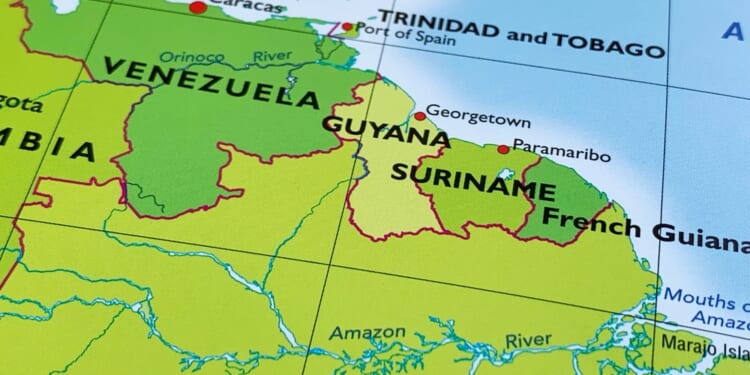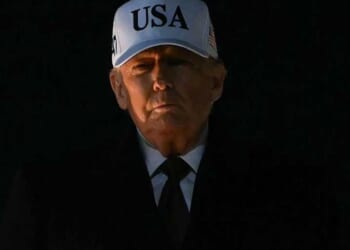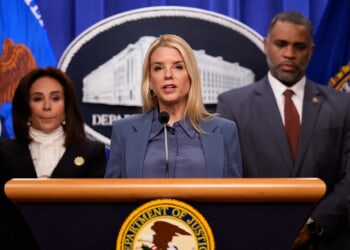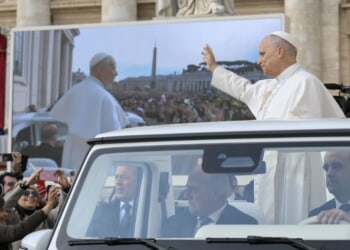Oil, crime, and US-China tensions collide in the Southern Caribbean, as Venezuela’s actions threaten regional stability and put the region’s booming energy sector in the crosshairs.
Shadows are being cast over the Southern Caribbean. Powerful criminal gangs trafficking in drugs, guns, and humans threaten vulnerable socio-political structures. Venezuela’s President Nicolás Maduro is aggressively claiming two-thirds of Guyana and has been happy to make his country a part of a major criminal transit zone. Pressures are also mounting from an increasingly sharper-elbowed new Cold War between the United States and China. The US naval flotilla offshorethe South American country serves as a subtle reminder to Maduro and his foreign backers, China, Russia, and Iran, that their man in Caracas is vulnerable. Tension levels are apt to increase, keeping the Southern Caribbean on geopolitical radars.
Energy and US Interests in the Southern Caribbean
Washington’s hard line on Venezuela in the Southern Caribbean is not solely about drugs and putting the Maduro regime under pressure, but about safeguarding energy and US investment. The region consisting of Guyana, Suriname, and Trinidad and Tobago is sometimes referred to as the Southern Caribbean Energy Matrix. While Guyana and Surinamehave some of the world’s largest untouched forests, which are important as carbon sinks in dealing with climate change, they are also emerging oil and natural gas producers. Guyana is the sixth-largest oil producer in the Western hemisphere and is rising. Its oil production and exports are surging, with output exceeding 660,000 barrels per day (bpd), and are expected to reach 1.3 million bpd by 2030. Natural gas is also coming online, and the rest of the world wants what the Southern Caribbean is selling. In 2024, Europe was the largest purchaser of Guyana’s crude, with 66 percent of its exports heading in that direction, with other buyers including China, India, and the United States.
Suriname is on the same track as Guyana. France’s TotalEnergies and the United States’ APA together are investing $10.5 billion to bring major commercial quantities of oil online over the next several years. Trinidad and Tobago exports natural gas and has a well-developed industrial infrastructure for hydrocarbon and related products. This could be important to the deepening of cross-border development of the region as a major cross-border energy hub. There may be a global energy transition, but oil and gas are going to maintain an important role in energy generation for several more decades, and these countries will play a role.
The Region’s Role as a Trade Crossroads and Criminal Transit Zone
There is more to the Southern Caribbean than oil and gas. The region, including points north in the Greater and Lesser Antilles, functions as a major crossroads for legitimate trade and investment. The region sits as a critical waterway for goods heading from North and South America to Asia via the Panama Canal and the reverse, with Asian goods heading to Atlantic ports.
The Caribbean, as a crossroads, has other, less pristine dimensions as well. The region is a major transit route for guns heading south from the United States and drugs and humans heading north. The drugs, namely South American cocaine, are largely destined for the United States, though over the past several years the flow has increasingly headed to European users. Sadly, Guyana, Suriname, and Trinidad and Tobago are part of the transit route and suffer gang-related violence. Venezuela also plays an important role in the illicit flow of drugs (more on this later).
The Caribbean is particularly vulnerable to large-scale transitional criminal organizations. As a group, these countries have relatively small police and coastal forces, limited resources, and many governments are hard-pressed financially, with some of the world’s highest debt-to-GDP levels (Guyana is not one of those). This has led to a challenge for Caribbean governments, including those in the Southern Caribbean, to contend with the illicit traffic of drugs, guns, and people.
Venezuela’s Role in Regional Destabilization
A major factor in criminal activity in the Southern Caribbean is Venezuela under Maduro. Nicolás Maduro, who came to power in 2013 when his predecessor Hugo Chávez died, has presided over a lengthy period of rule, which has been characterized by gross economic mismanagement, blatant electoral fraud, and heavy-handed repression. The economy contracted by 75 percent between 2014 and 2021, while hyperinflation ripped up the value of the currency, radically shrinking the private sector and forcing over eight million Venezuelans to flee their country. As Patrick Duddy, former US ambassador to Venezuela, notes: “As the Maduro government’s domestic support has evaporated and the consequence of its economic incompetence has become ever more evident, the regime has become increasingly and unapologetically authoritarian.” The regime is backed by Cuban security forces, Chinese, Russian, and Iranian assistance, and has ties to transnational criminal groups operating out of Colombia, Ecuador, and Peru.
What keeps the Venezuelan economy afloat and, more narrowly, the Maduro regime in power is a combination of criminal activities, oil flows, and support from China, Cuba, Russia, and Iran. The Cartel of the Sun, which involves top officials in the Maduro regime and the armed forces, has been identified as a major player in the flow of illicit goods. In July 2025, it was sanctioned as a Specifically Designated Global Terrorist, “headed by Nicolas Maduro Moros and other high-ranking Venezuelan individuals in the Maduro regime that provide material support to foreign terrorist organizations threatening the peace and security of the United States, namely Tren de Aragua and the Sinaloa Cartel.”
While the Maduro regime enables a major transit point for smuggled gold, drugs, and weapons, it is a destabilizing force in the rest of the Caribbean and Latin America as it meddles in the affairs of its neighbors. It is the home base for Tren de Aragua, the major transnational criminal group that emerged in recent years from Venezuela and spread throughout the Western Hemisphere. It is alleged that Tren de Aragua was behind the 2024 murder of regime dissident Ronald Ojeda in Santiago, Chile. Caracas has also worked with and provided support for Colombia’s guerrilla group, the National Liberation Army (ELN), which has become an important player in the international drug trade, gold smuggling, and kidnapping and extortion. At the same time, Maduro has reactivated his country’s claim to two-thirds of neighboring Guyana. In this, he has built up military forces along the border, claimed that the mineral-rich disputed Essequibo region is now a department of Venezuela, and plans to hold elections there.
In a broader geopolitical sense, Venezuela has clearly sided with the explicitly anti-United States alliance of countries headed by China and Russia. It was an early member of China’s Belt and Road Initiative (BRI), has been a vocal advocate for China in international forums, and remains one of the country’s major export and import partners.
US Policy and the Monroe Doctrine Reasserted
The Trump administration favors a more muscular approach to Venezuela, especially as it has espoused the need to reassert the Monroe Doctrine. Taking this into consideration, the Southern Caribbean is regarded as an important zone of influence. There are four reasons for this: it has become a major oil and gas hub in which major US corporations are active, it is a source of US energy, China is active in the region and needs to be contained, and Venezuela can jeopardize the Southern Caribbean Energy Matrix’s operations. US interest in the region was demonstrated in August 2025 by sending a small flotilla of ships offshore Venezuela with the stated purpose of going after drug traffickers. This is the largest deployment of US military might in decades, with the real purpose likely to pressure the Maduro regime.
While there is speculation that the Trump administration is contemplating a military intervention along the lines of Operation Just Cause in Panama in 1989 or the Urgent Fury involving Grenada in 1983, the naval exercise should be observed as part of a campaign of ratcheting up pressure with the intention of cracking the regime’s unity, particularly within the Venezuelan military. While Maduro has a $50 million price on his head, the military could act to ease out the president and his cronies from power and hopefully open the door for a more democratic order. In this context, the Trump administration may regard regime change in Venezuela as low-hanging fruit in its hegemonic rivalry with China.
Considering the long history of American intervention in Caribbean affairs, regional governments are deeply concerned about the outcomes. No one wishes to see a return to the era of gunboat diplomacy or a shooting war, but there are some who favor a tougher line on Venezuela, a country that brought a flow of migrants, upped criminal activity, and complicated regional diplomacy. Trinidad and Tobago’s government favors the tough line on Venezuela, although the action was condemned by the opposition. Guyana also favors a strong US presence, considering the ongoing Venezuelan threat to its sovereignty. For its part, pro-Venezuelan St. Vincent and the Grenadines has been critical of US actions, while Grenada has offered to mediate.
While there is much focus on Venezuela, US pressure on the regime must be seen in the context of a larger US effort on the anti-narcotics front. Not only do Guyana, Trinidad and Tobago, and Suriname have their drug problems and are open to US assistance, but Washington has also recently made agreements pertaining to drug policies with Mexico and Ecuador, as well as decertifying Colombia. Moreover, the United States military’s augmented presence in the Caribbean, including the deployment of F-35 fighter craft to Puerto Rico, could also serve to warn Haiti’s criminal gangs that it has a greater capacity to reach out and touch them.
US Strategy and Regional Stability
Looking ahead, the Trump administration will apply more pressure on the Maduro regime, using the threat of military force, while further tightening economic prospects. That could see a reduction of the South American country’s oil sales to the United States, which would mainly impact American energy company Chevron. However, Chevron recently bought another US energy company, Hess, giving it access to Guyana’s oil bonanza. Although the more muscular US policy vis-à-vis Venezuela is causing nervousness throughout the Caribbean, a tougher stance on Caracas, including US support for the integrity of Guyana’s borders, is probably a more constructive outcome in the long run.
US actions in the Southern Caribbean are also likely to set the stage at the upcoming Summit of the Americas in December, being held in the Dominican Republic, a strong US ally. The Trump administration is letting the rest of the Americans know it is back as a stronger player (China and Russia take note), that a new round of the war on drugs is on, and that the Southern Caribbean is important to policymakers in Washington. There will be much more to come on this front.
About the Author: Scott B. MacDonald
Dr. Scott MacDonald is the Chief Economist for Smith’s Research & Gradings, a Fellow with the Caribbean Policy Consortium, and a research fellow with Global Americans. Prior to those positions, he worked for the Office of the Comptroller of the Currency, Credit Suisse, Donaldson, Lufkin and Jenrette, KWR International, and Mitsubishi Corporation. His most recent book is The New Cold War, China and the Caribbean (Palgrave Macmillan 2022).
Image: AustralianCamera/shutterstock

















